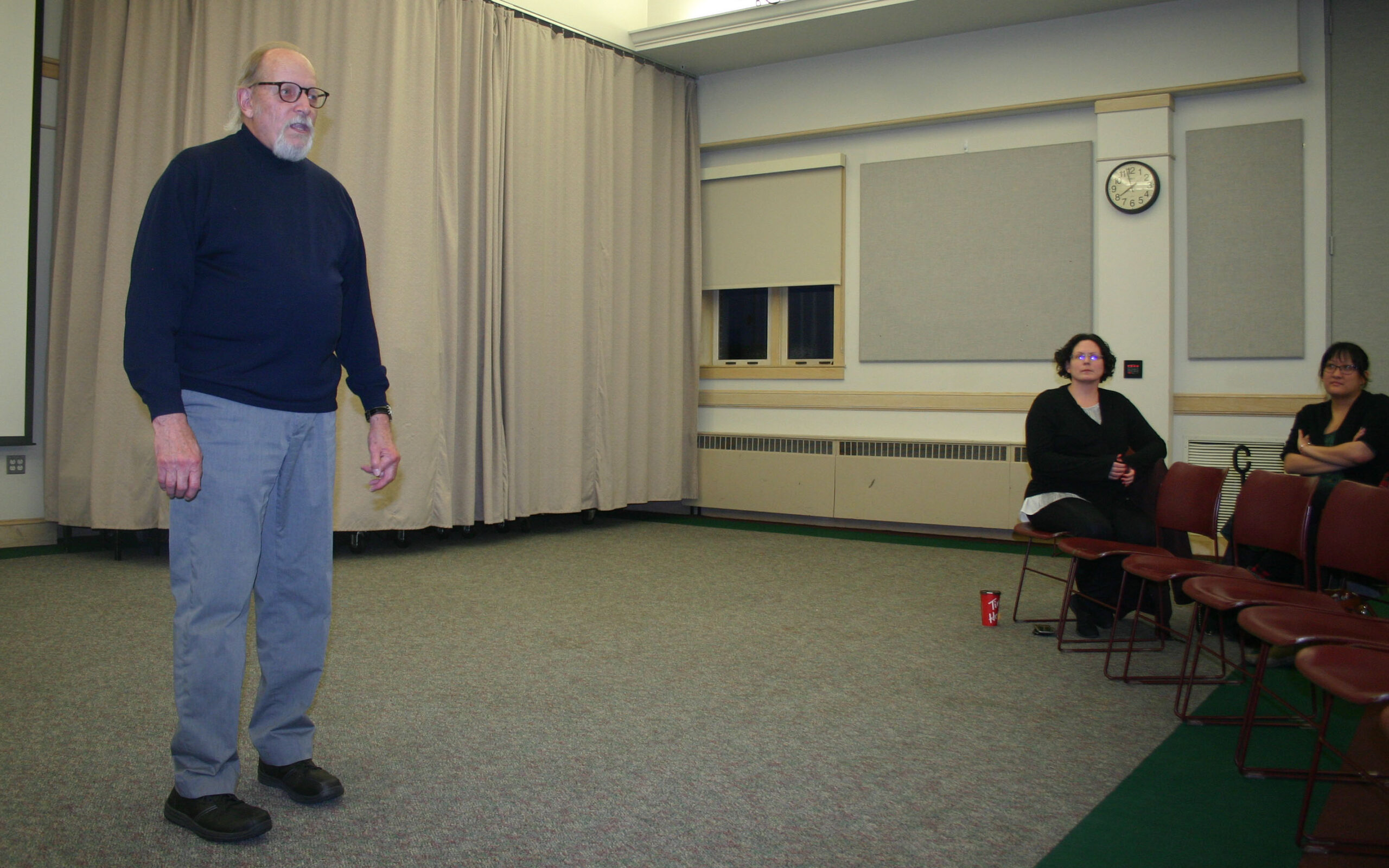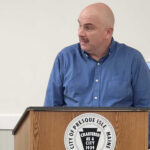
PRESQUE ISLE, Maine — Dr. Stephen Bavolek wants people to know that violence is a learned behavior, not a trait that humans are born with, and that the elimination of child abuse in Maine and across the country is possible.
“We’re all born as nurturers. Humans are predisposed to build and sustain long-term relationships,” Bavolek told community members during his April 26 presentation at the University of Maine at Presque Isle. “Violence is not part of who we are, it’s something that comes through negative nurturing.”
Bavolek is a nationally-recognized expert and researcher on child abuse prevention and treatment, and founder and president of Family Development Resources, Inc. His program uses the Nurturing Parenting model, which works with parents to build nurturing parenting skills as alternatives to abuse and neglect.
In Maine, the issue of child abuse came to the forefront in late February when the mother and stepfather of 10-year-old Marissa Kennedy — Sharon Carrillo, 33, and Julio Carrillo, 51 — were arrested in Stockton Springs for allegedly beating the girl to death. Police said she suffered months of physical abuse before the fatal beating.
The most recent published statistics from the Maine Department of Health and Human Services reveal that the agency received 18,630 reports of child abuse or neglect in 2016, with 2,024 of those reports coming from Aroostook County.
Bavolek told his audience Wednesday that child abuse has roots in parenting practices that many once considered “normal” and never questioned. During the 1950s and 60s, for instance, doctors would slap newborn babies to eliminate mucus. Doctors have since replaced that method with turning babies on their stomach and rubbing them gently, a practice that Bavolek says encourages nurturing behaviors at an early age.
“Touch is the most tactile of all our senses and so when people used to hit babies after birth, the first experience with touch children received was a violent one,” Bavolek said.
During his career, Bavolek has worked with children and teens who have experienced physical, emotional and/or sexual abuse at the hands of parents, family members and others whom children would typically want to trust. He has learned that many of those children exhibit violent behaviors as a response to the violence that they’ve seen and endured from family members their entire lives.
He also blames a culture of silence for sometimes unintentionally discouraging children and teens from speaking out about abuse.
“It used to be that when a child would point to someone that their parents knew and say, ‘Scary man,’ their parents would say, ‘No, he’s a nice man, why don’t you go sit on his lap,’” Bavolek said. “No one would suspect that the child had been molested because families would be in denial. They’d think, ‘It can’t happen in our family.’”
The traditional practice of childhood obedience throughout that same era also played a role, Bavolek noted.
“Children were taught never to say, ‘No,’ to parents and to never ask, ‘Why?’ even though we’re all hardwired to ask that question,” Bavolek said. “But when you can’t say, ‘No,’ to your parents, who are you going to say, ‘No,’ to?”
Bavolek encouraged a more nurturing approach to parenting. He suggested that instead of trying to get babies and toddlers to stop crying, parents use techniques that tell children it’s OK to recognize their emotions.
“We tend to tell children, ‘Stop crying!’ but babies have yet to develop the ability to stop crying on their own,” Bavolek said. “What parents should do instead is just hold their baby and say, ‘It’s OK, I’m here. It’s OK for you to cry.’”
Bavolek’s presentation proved to be an interactive one for the audience, as he encouraged them to think about behaviors that could help children to respect themselves as individuals. He asked audience members to hold the hands of the person sitting next to them. One person gave their partner a compliment while the other said, “Thank you,” while nodding and smiling. Then the partners switched roles.
The purpose of the exercise, Bavolek stated, was to help people eliminate the “voices” in their heads that tell them they’re not good enough and that they don’t deserve to receive praise. Those feelings have an even more extreme effect on children who have experienced abuse.
“You’ve just had the most touching experience you could have because you let someone else compliment you,” Bavolek told everyone after the role-playing exercise. “Giving praise has always been easier for us than receiving praise because we normally shut out the ‘nurturer’ voice in our minds.”
Bavolek’s presentation made an impression on many audience members, who felt encouraged to think about the prevention of child abuse as a goal that doesn’t go away after the annual Child Abuse Prevention Month of April ends.
“As a therapist, I appreciate how he uses the nurturing parenting model to teach children that their feelings are normal,” Shawna Traugh of Caribou said after the presentation. “I agree with him about how we’re all born nurturers and that violence is something that we normalize as a society overtime.”







